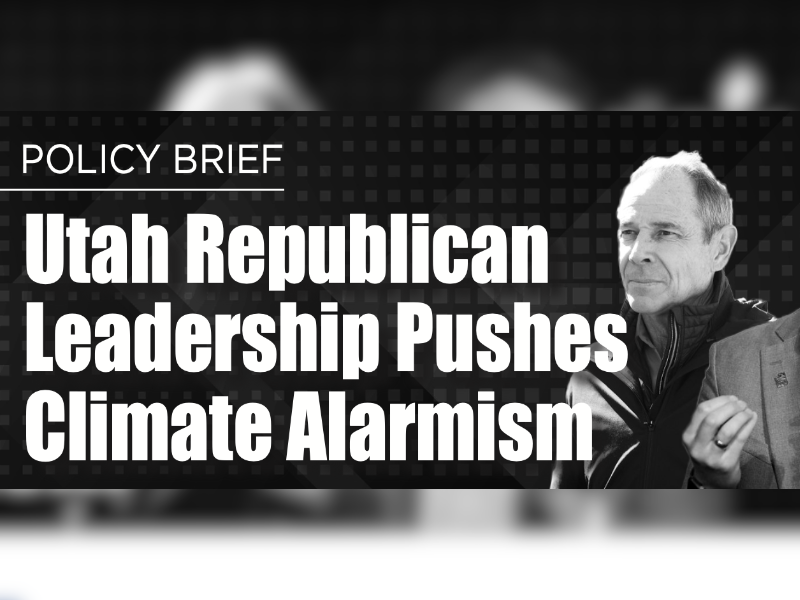Many of Utah’s leading Republican politicians have defied conservative voters and bought into Al Gore’s and the Biden-Harris administration’s climate alarmism. In doing so, they have promoted policies that will increase Utah energy prices while limiting consumers’ energy choices.
The state of Utah is experiencing no net harm from purported human-caused climate change.
Despite this fact, several Republican leaders from the state have embraced the language and policy objectives of climate alarmists.
For instance, Rep. John Curtis (R-UT) is the Republican nominee to replace Sen. Mitt Romney
(R-UT). While serving as a U.S. representative for Utah, Curtis was chairman of the Congressional Climate Caucus during which he frequently emphasized the need for “clean” energy sources. In fact, Curtis has called for “bold and innovative policies” to address climate change, which he describes as the “greatest environmental challenge of our time.”
Although he acknowledges that fossil fuels have a role in Utah’s energy mix, in a 2020 Washington Examiner op-ed co-written with Rich Powell, Curtis asserted that he and his co-author are “strong believers that it is too much carbon dioxide in the air that is the problem.”
Curtis is a climate-activist Republican, going so far as to host an annual “Conservative Climate Summit,” including one forthcoming in October 2024. Similarly, Rep. Blake Moore (R-UT) also claims climate change is a serious problem, saying that Republicans “should not let the Democrat Party own this issue.” Moore also touts his work with the Citizens Climate Lobby, which pushes for carbon dioxide taxes and extreme emission-reduction schemes.
Pushing the climate catastrophe narrative, as Curtis and Moore have consistently done for years, harms the people of Utah and betrays Republican voters.
The climate has always changed, and always will. Although average temperatures on the planet have gradually increased since the conclusion of the last ice age, there is significant debate surrounding the extent to which human activities have contributed to the slight warming trend over the past 50 years.
Moreover, there is no real-world evidence the modest warming has been or will be catastrophic. Available data covering the vast expanse of Earth’s climate, including trends in weather patterns, do not indicate there is a looming crisis. To the contrary, the majority of the effects of climate change and increased carbon dioxide in the atmosphere are beneficial to life on Earth, including Utah.





